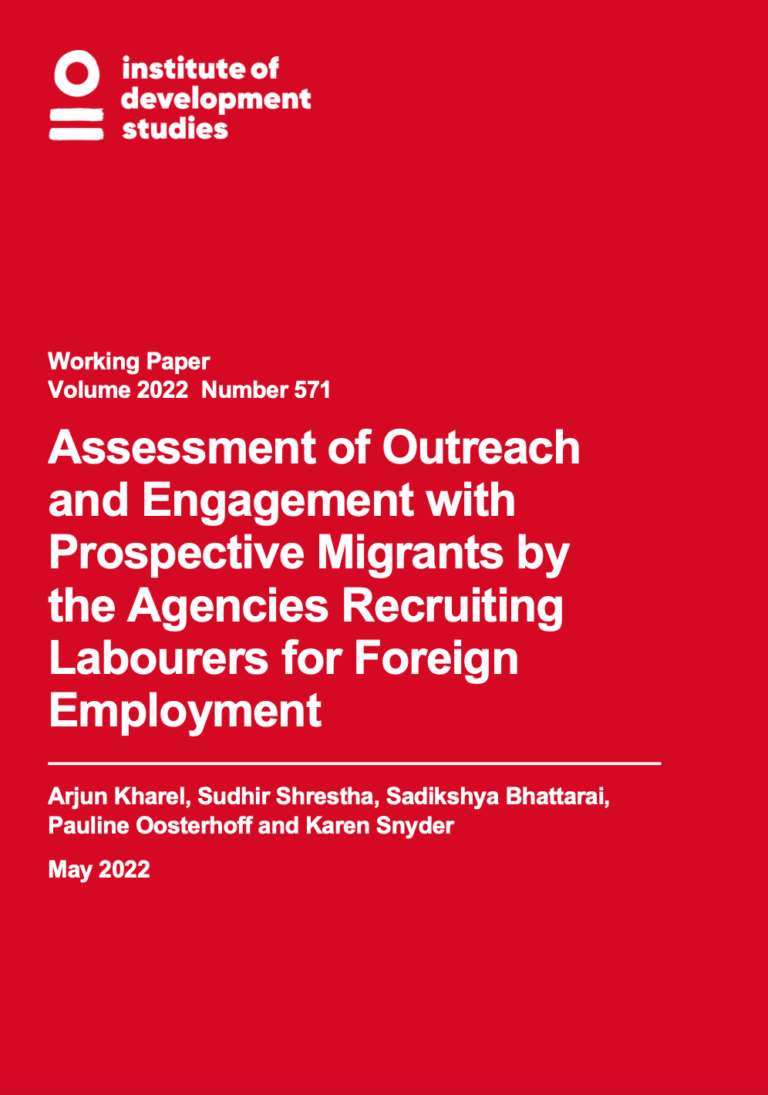This study was conducted to identify the gaps in policies and practices of labour recruitment in Nepal and assess the outreach and engagement of major formal labour intermediaries, private recruitment agencies (PRAs) and pre-departure orientation training (PDOT) centres, with migrant workers for providing information on human trafficking prior to departure. The study used data from interviews with the management of 15 PRAs and 10 PDOT centres, along with a review of online materials published by the sampled PRAs and PDOT centres and existing publications on labour migration from Nepal. This research finds that several inconsistencies and gaps in the practices and policies of labour recruitment have contributed to increase the overall migration costs for, and affected the safe migration of, Nepali workers. Only minimal information on human trafficking was provided to migrant workers prior to departure through online materials, print job advertisements, and face-to-face interactions with the potential migrants. The PDOT classes had simply become a customary requirement in the process of getting labour permits and there was little incentive for the PDOT centres to improve their quality of service as they got their clients through their PRA network, rather than through competition based on quality. The study concludes with recommendations to the government agencies, non-governmental organisations, and PRAs for improving labour migration from Nepal.

